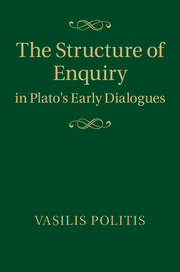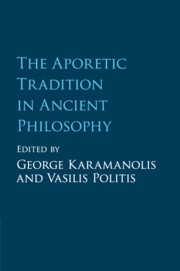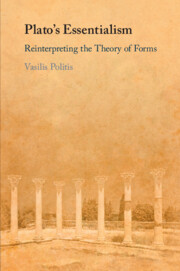The Structure of Enquiry in Plato's Early Dialogues
This book proposes and defends a radically new account of Plato's method of argument and enquiry in his early dialogues. Vasilis Politis challenges the traditional account according to which these dialogues are basically about the demand for definitions, and questions the equally traditional view that what lies behind Plato's method of argument is a peculiar theory of knowledge. He argues that these dialogues are enquiries set in motion by dilemmas and aporiai, incorporating both a sceptical and an anti-sceptical dimension, and he contends that Plato introduces the demand for definitions, and the search for essences, precisely in order to avoid a sceptical conclusion and hold out the prospect that knowledge can be achieved. His argument will be of great value to all readers interested in Plato's dialogues and in methods of philosophical argument more generally.
- Offers and defends a radical new perspective on Plato's method of argument and enquiry in the early dialogues
- Provides an accessible examination of Plato's early dialogues, appealing to non-specialists
- Proposes an alternative to the traditional interpretation, offering new directions for debates on Plato's method of argument
Product details
May 2015Hardback
9781107068117
266 pages
237 × 158 × 22 mm
0.54kg
2 b/w illus.
Available
Table of Contents
- Introduction
- Part I. The Issue of the Justification of Plato's Essentialism:
- 1. The raising of the ti esti question
- 2. How to answer the ti esti question
- 3. The thesis of the priority of definition
- Part II. The Role of Aporia and the Root of Plato's Essentialism:
- 4. What are Plato's early dialogues about?
- 5. Whether-or-not questions and agonistic argument
- 6. Whether-or-not questions and the articulation of aporiai
- 7. Aporia-based enquiry aiming at knowledge
- 8. What is behind the ti esti question?
- Bibliography
- General index
- Index of passages cited.








